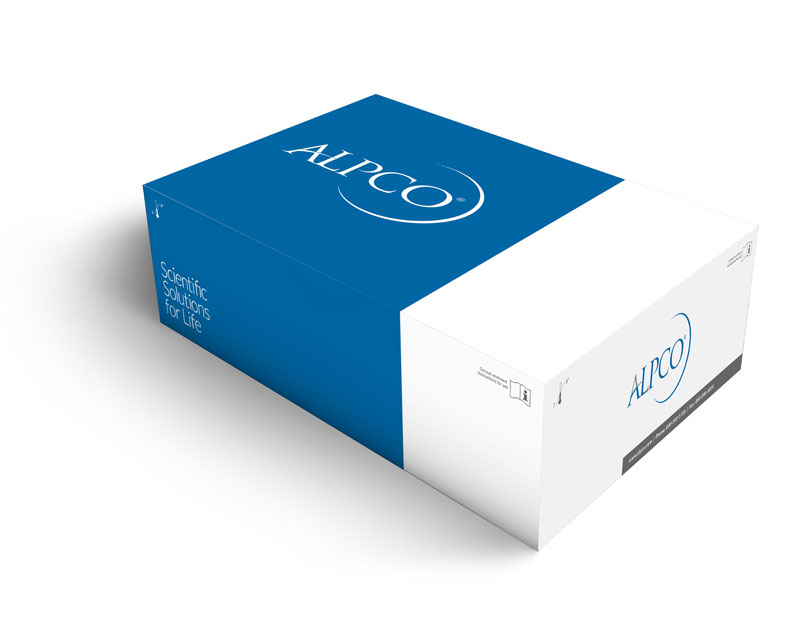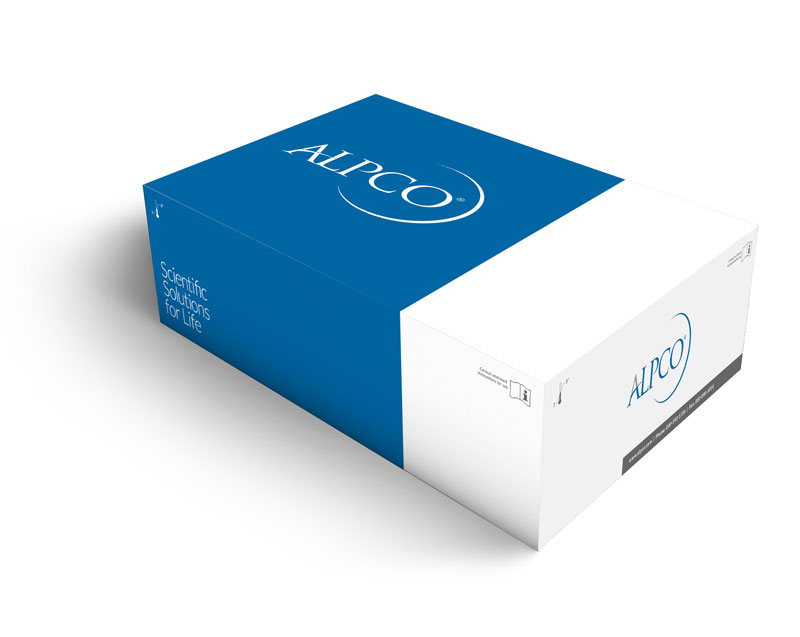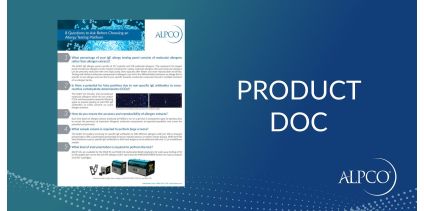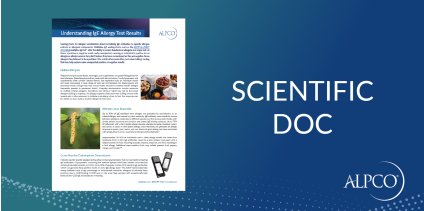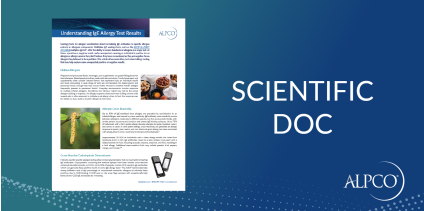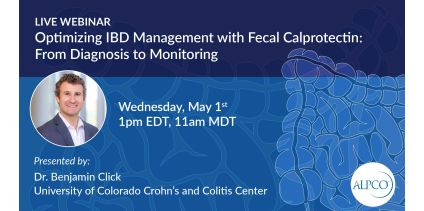ALPCO offers targeted GI solutions suitable for all types of labs. Our offerings range from plate-based to clinical chemistry analyzer-based and automated flash chemiluminescence solutions, all designed to accommodate your lab’s expanding testing needs and capabilities.
Calprotectin Immunoturbidimetric Assay
The Calprotectin Immunoturbidimetric Assay is an in vitro diagnostic particle-enhanced immunoassay intended for use by trained laboratory personnel for the quantitative measurement of fecal calprotectin, a neutrophilic protein that is a marker of intestinal mucosal inflammation, in human stool.
The Calprotectin Immunoturbidimetric Assay is intended for in vitro diagnostic use as an aid in the diagnosis of inflammatory bowel disease (IBD), specifically Crohn’s disease (CD) and ulcerative colitis (UC), and as an aid in the differentiation of IBD from irritable bowel syndrome (IBS) in conjunction with other clinical and laboratory findings.
The Calprotectin Immunoturbidimetric Assay is used in conjunction with several accessories; the Calprotectin Control Set (80-CALPHU-ITCON), Calprotectin Calibrator Set (80-CALPHU-ITCAL), and pre-filled stool extraction devices (30-EZEX-100) or extraction buffer (10-EXBUF-55).
Calprotectin, a heterodimer comprised of S100A8/A9 monomers, also known as myeloid-related protein (MRP) 8/14 subunits, is an immunomodulatory protein accounting for up to 60% of cytosolic protein in neutrophil granulocytes and macrophages. Calprotectin plays a central role in neutrophil defenses and inflammatory pathologies. Under conditions of intestinal inflammation, calprotectin is released into the gastrointestinal lumen and serves as an accurate biomarker of mucosal inflammation.(1)
Measurement of fecal calprotectin levels provides valuable information that can assist physicians to determine whether to send inflammatory bowel disease (IBD) patients for colonoscopy or treat them for IBS symptoms.(2) Traditionally, IBD activity has been assessed through clinical symptoms, but it has been reported that these recognized activity indexes are subjective and do not correlate as consistently as fecal calprotectin levels with histologic inflammation.(3)
References:
1. Manz et al. (2012). Value of Fecal Calprotectin in the Evaluation of Patients with Abdominal Discomfort: An Observational Study. BMC Gastroenterol. PMID: 22233279.
2. Tibble et al. (2000). A simple method for assessing intestinal inflammation in Crohn’s disease. Gut, 47(4), 506-513. PMID: 10986210.
3. Lobaton et al. (2012). A New Rapid Test for Calprotectin Predicts Mucosal Healing in Crohn’s Disease and Ulcerative Colitis. Journal of Crohn’s and Colitis.

